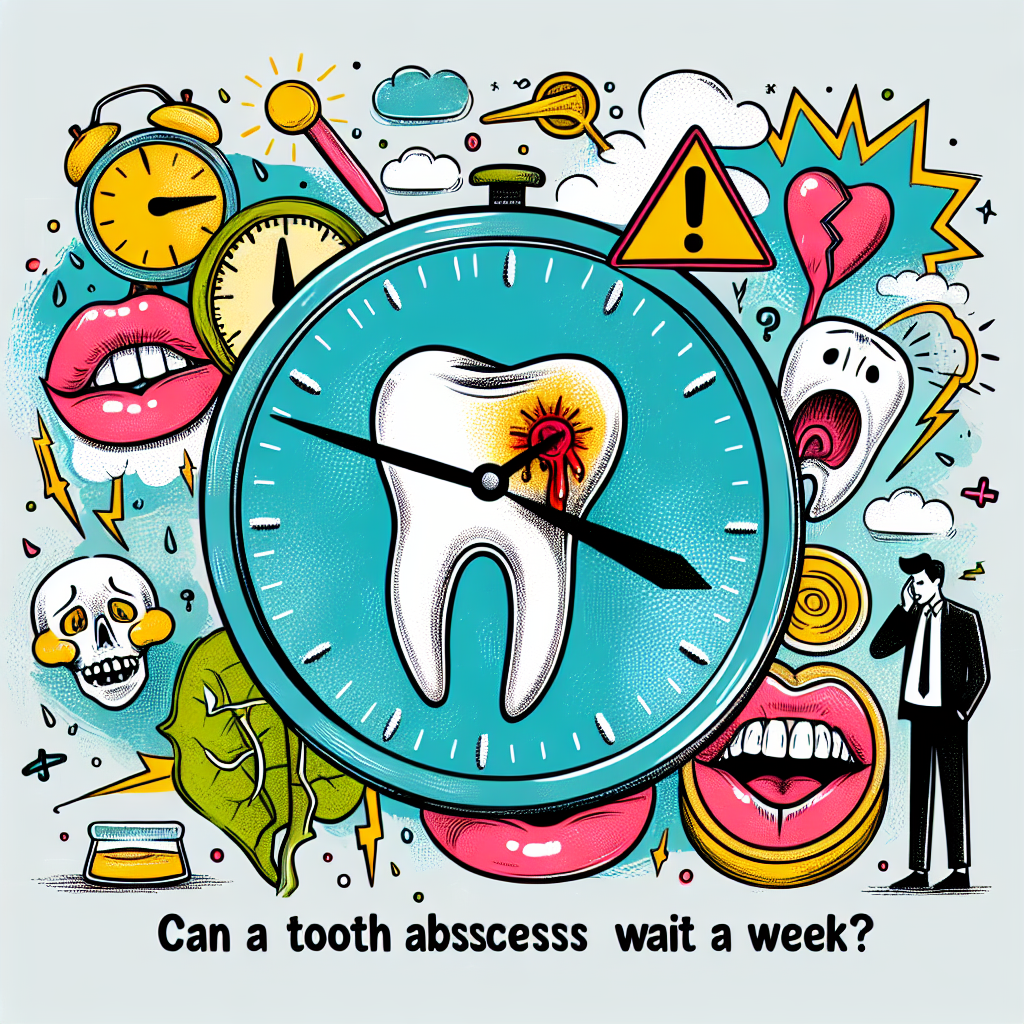Introduction
Dealing with a tooth abscess can be incredibly painful and distressing. It’s only natural to wonder if the situation is urgent or if it can wait until the next available dental appointment. In this article, we’ll address the question, “Can a tooth abscess wait a week?” and provide you with the information you need to make an informed decision about seeking prompt dental care.
Table of Contents
- What is a tooth abscess?
- The risks of delaying treatment
- When should you seek immediate dental care?
- Home remedies for temporary relief
- FAQs
- Conclusion
What is a tooth abscess?
A tooth abscess is a pocket of pus that forms in or around a tooth due to a bacterial infection. It typically occurs as a result of untreated tooth decay, trauma to the tooth, or gum disease. The infection can spread from the tooth root to the surrounding tissues and even enter the bloodstream, leading to potentially serious complications.
The risks of delaying treatment
Delaying treatment for a tooth abscess can have severe consequences. Here are some potential risks:
- The infection can spread: A tooth abscess won’t resolve on its own, and the infection can spread to other parts of the body, including the jawbone, sinuses, or even the brain.
- Increased pain and discomfort: As the infection progresses, the pain and discomfort associated with the abscess will likely intensify. This can make it difficult to eat, sleep, and carry out daily activities.
- Damaged tooth structure: If left untreated, the infection can cause significant damage to the tooth structure, potentially leading to tooth loss.
- Systemic health issues: Untreated dental infections have been linked to an increased risk of systemic health issues, such as cardiovascular disease and respiratory infections.
When should you seek immediate dental care?
While it’s always best to consult with a dental professional to determine the urgency of your specific situation, there are certain signs and symptoms that indicate the need for immediate dental care:
- Severe and persistent toothache
- Swelling of the face or gums
- Fever and general malaise
- Difficulty swallowing or breathing
- Painful, throbbing sensation in the affected area
If you experience any of these symptoms, it’s crucial to seek immediate dental attention to prevent further complications.
Home remedies for temporary relief
While seeking professional dental care is essential, there are a few home remedies that may provide temporary relief from the pain and discomfort of a tooth abscess:
- Rinsing with warm saltwater
- Applying a cold compress to the affected area
- Taking over-the-counter pain medications (following the recommended dosage)
- Avoiding hot or cold foods and beverages
Remember, these remedies are not a substitute for professional dental treatment, but they may help alleviate symptoms until you can see a dentist.
FAQs
Q: Can a tooth abscess go away on its own?
A: No, a tooth abscess will not go away on its own. It requires professional dental treatment to eliminate the infection and prevent further complications.
Q: Can antibiotics cure a tooth abscess?
A: Antibiotics can help control the infection and reduce symptoms temporarily, but they cannot cure a tooth abscess. Dental treatment is necessary to address the underlying cause and prevent recurrence.
Q: How long does it take for a tooth abscess to heal after treatment?
A: The healing time for a tooth abscess varies depending on the severity of the infection and the treatment provided. In most cases, it can take anywhere from a few days to a couple of weeks for the abscess to heal completely.
Conclusion
A tooth abscess is a serious dental condition that should not be taken lightly. While it’s understandable to want to avoid immediate dental care, delaying treatment can lead to severe complications and increased pain. If you suspect you have a tooth abscess, it’s essential to seek prompt dental attention to prevent further damage and ensure your overall well-being.




